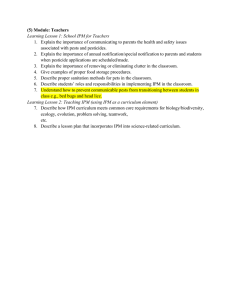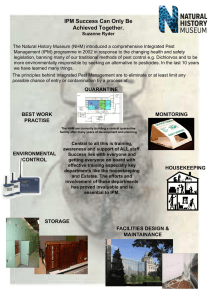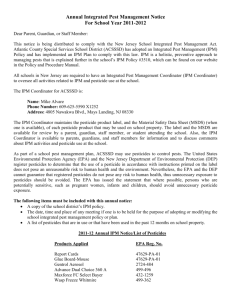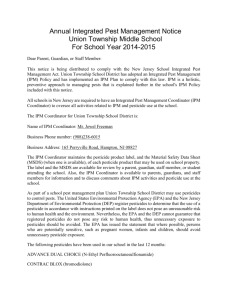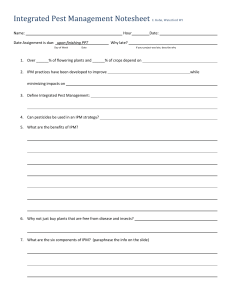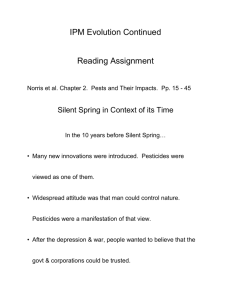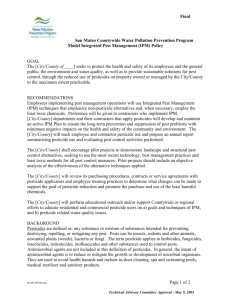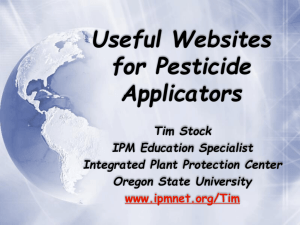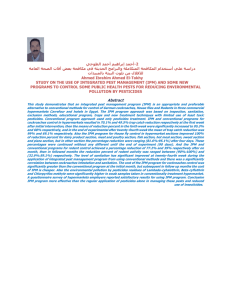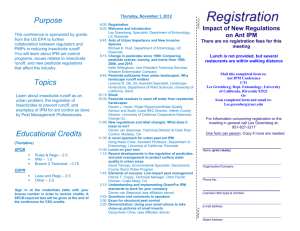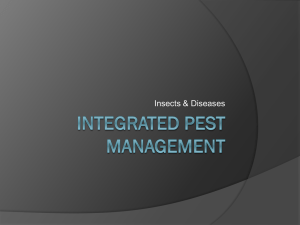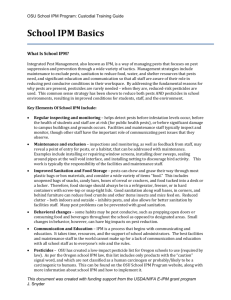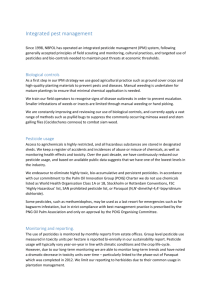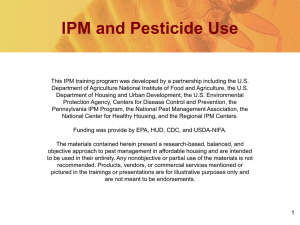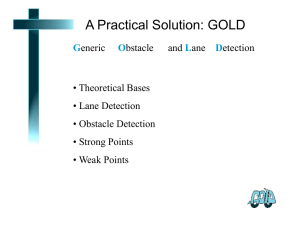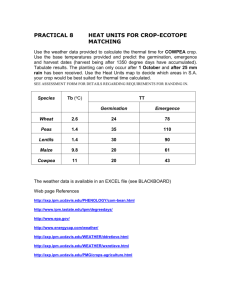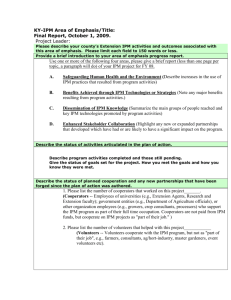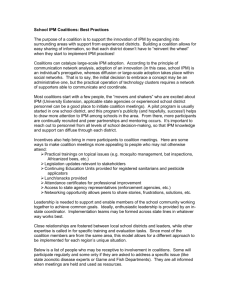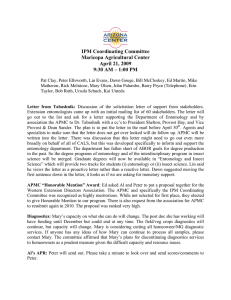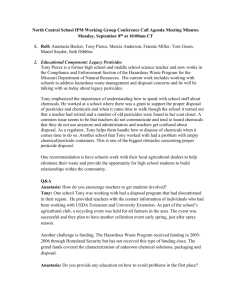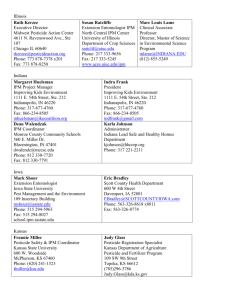School IPM Law – What Custodians Need to Know
advertisement
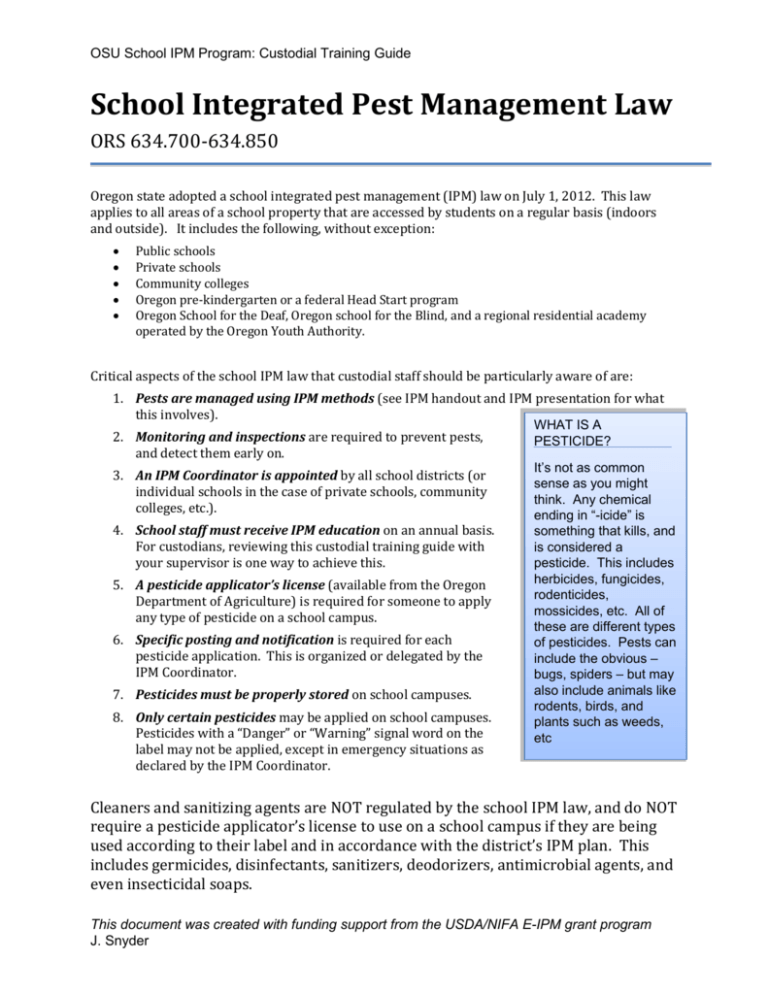
OSU School IPM Program: Custodial Training Guide School Integrated Pest Management Law ORS 634.700-634.850 Oregon state adopted a school integrated pest management (IPM) law on July 1, 2012. This law applies to all areas of a school property that are accessed by students on a regular basis (indoors and outside). It includes the following, without exception: Public schools Private schools Community colleges Oregon pre-kindergarten or a federal Head Start program Oregon School for the Deaf, Oregon school for the Blind, and a regional residential academy operated by the Oregon Youth Authority. Critical aspects of the school IPM law that custodial staff should be particularly aware of are: 1. Pests are managed using IPM methods (see IPM handout and IPM presentation for what this involves). WHAT IS A 2. Monitoring and inspections are required to prevent pests, PESTICIDE? and detect them early on. It’s not as common 3. An IPM Coordinator is appointed by all school districts (or sense as you might individual schools in the case of private schools, community think. Any chemical colleges, etc.). ending in “-icide” is 4. School staff must receive IPM education on an annual basis. something that kills, and For custodians, reviewing this custodial training guide with is considered a your supervisor is one way to achieve this. pesticide. This includes herbicides, fungicides, 5. A pesticide applicator’s license (available from the Oregon rodenticides, Department of Agriculture) is required for someone to apply mossicides, etc. All of any type of pesticide on a school campus. these are different types 6. Specific posting and notification is required for each of pesticides. Pests can pesticide application. This is organized or delegated by the include the obvious – IPM Coordinator. bugs, spiders – but may also include animals like 7. Pesticides must be properly stored on school campuses. rodents, birds, and 8. Only certain pesticides may be applied on school campuses. plants such as weeds, Pesticides with a “Danger” or “Warning” signal word on the etc label may not be applied, except in emergency situations as declared by the IPM Coordinator. Cleaners and sanitizing agents are NOT regulated by the school IPM law, and do NOT require a pesticide applicator’s license to use on a school campus if they are being used according to their label and in accordance with the district’s IPM plan. This includes germicides, disinfectants, sanitizers, deodorizers, antimicrobial agents, and even insecticidal soaps. This document was created with funding support from the USDA/NIFA E-IPM grant program J. Snyder
